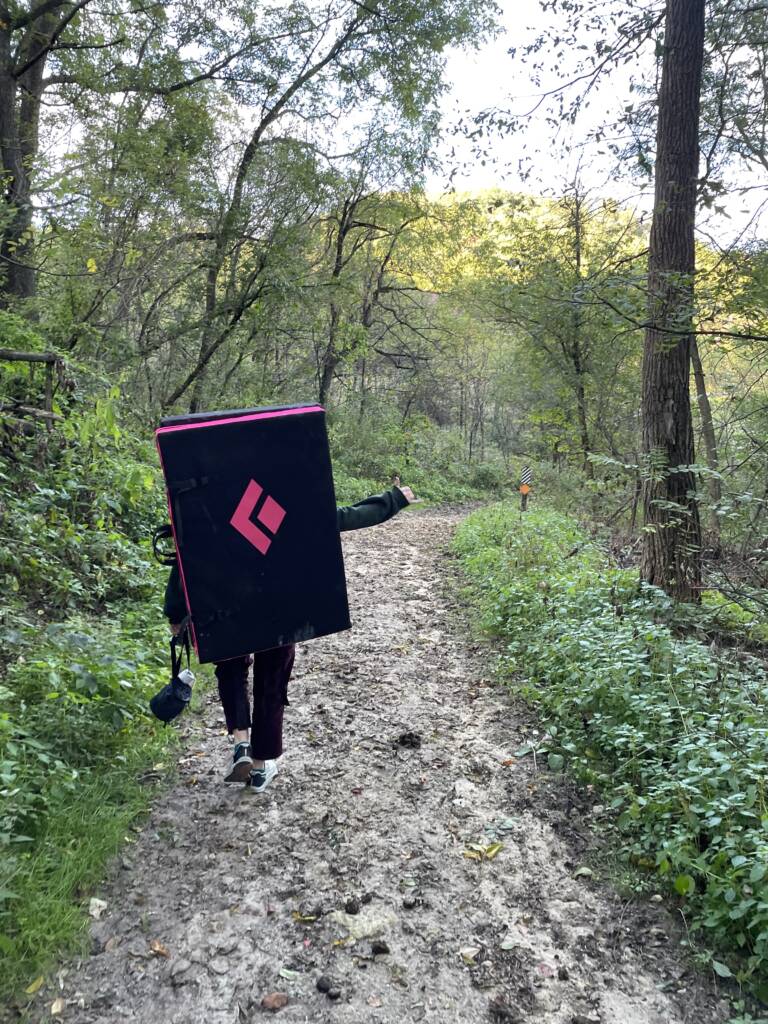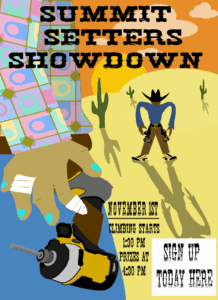Motherhood changes everything—priorities, sleep, time, and even your brain. As a climber, athlete, and someone who once thrived on risk and adventure, becoming a parent brought a tidal wave of new emotions and challenges. Among them, fear took center stage. I quickly began undertaking the art of mastering the balance of risk and reward.
This fear isn’t unfounded; it’s hardwired into our biology. But the journey to overcoming it, reclaiming confidence, and rediscovering joy in your passions is a powerful testament to the balance of risk and reward in both parenting and sport.
During pregnancy and postpartum, the brain undergoes significant changes, especially in areas related to emotions and social bonding. Research shows that the amygdala, the brain’s fear and emotion center, increases in activity and size during this time. This growth is thought to heighten maternal instincts, making you more vigilant and protective. While this increased sensitivity can help you respond to your baby’s needs, it can also make you more prone to anxiety, particularly around perceived risks. For climbers, mountain bikers, or runners—who once approached challenges with ease—this heightened fear can feel like a loss of identity.
For me, climbing postpartum was daunting. Before becoming a mother, I thrived on the thrill of scaling walls, trusting my gear, and topping out on risky boulders. But after, fear crept in—and I felt entirely unfamiliar on the wall. I’d make it 5ft off the ground and the Elvis shakes would prematurely set it. What if I fell? What if I tied in wrong? Who would care for my baby if something happened? These thoughts were paralyzing, and at first, they kept me from loving the sport again. But, I knew I couldn’t ignore the other side of the equation: climbing brought me joy.
Climbing Through Fear
Overcoming fear postpartum didn’t happen overnight. It took deliberate, gradual steps back onto the wall. This process mirrors exposure therapy, a psychological approach where repeated, controlled exposure to a fear-inducing situation helps reduce anxiety over time. So I implemented this by beginning with routes well within my comfort zone, focusing on the mechanics and rediscovering the rhythm of movement. Leaning into the trust I had in my climbing partners, my gear, and my abilities. I acknowledged progress and each successful climb—no matter how small—became a win, reinforcing my capability. Bit by bit, the fear subsided – it became manageable, a reminder of the stakes rather than a barrier.
For other athletes, this journey is universal. A runner returning to technical trails postpartum, a mountain biker tackling rocky descents, or a surfer paddling out into larger waves—all face the same internal battle. But each step, pedal, or stroke helps rebuild trust in your body and your abilities.
Fear isn’t the enemy—it’s a guide. It reminds us what’s at stake, but it also challenges us to assess and accept risk where the rewards are worth it. Motherhood sharpens this perspective.

For those navigating postpartum fear:
1. Start where you are. Small steps build momentum.
2. Celebrate growth. Each climb, stride, or ride is a step toward reclaiming yourself.
Motherhood and sport share a common thread: both ask us to face fear, embrace challenge, and grow through discomfort. And in both, the reward is immense—a deeper connection to who we are and the strength to show our children what it means to live fully.
3. Seek support. A trusted partner, coach, or community can help you rebuild confidence.
And remember, It’s not giving up all the run risky business you use to indulge in. It’s mastering the balance of risk and reward.
Tess Kachiroubas


